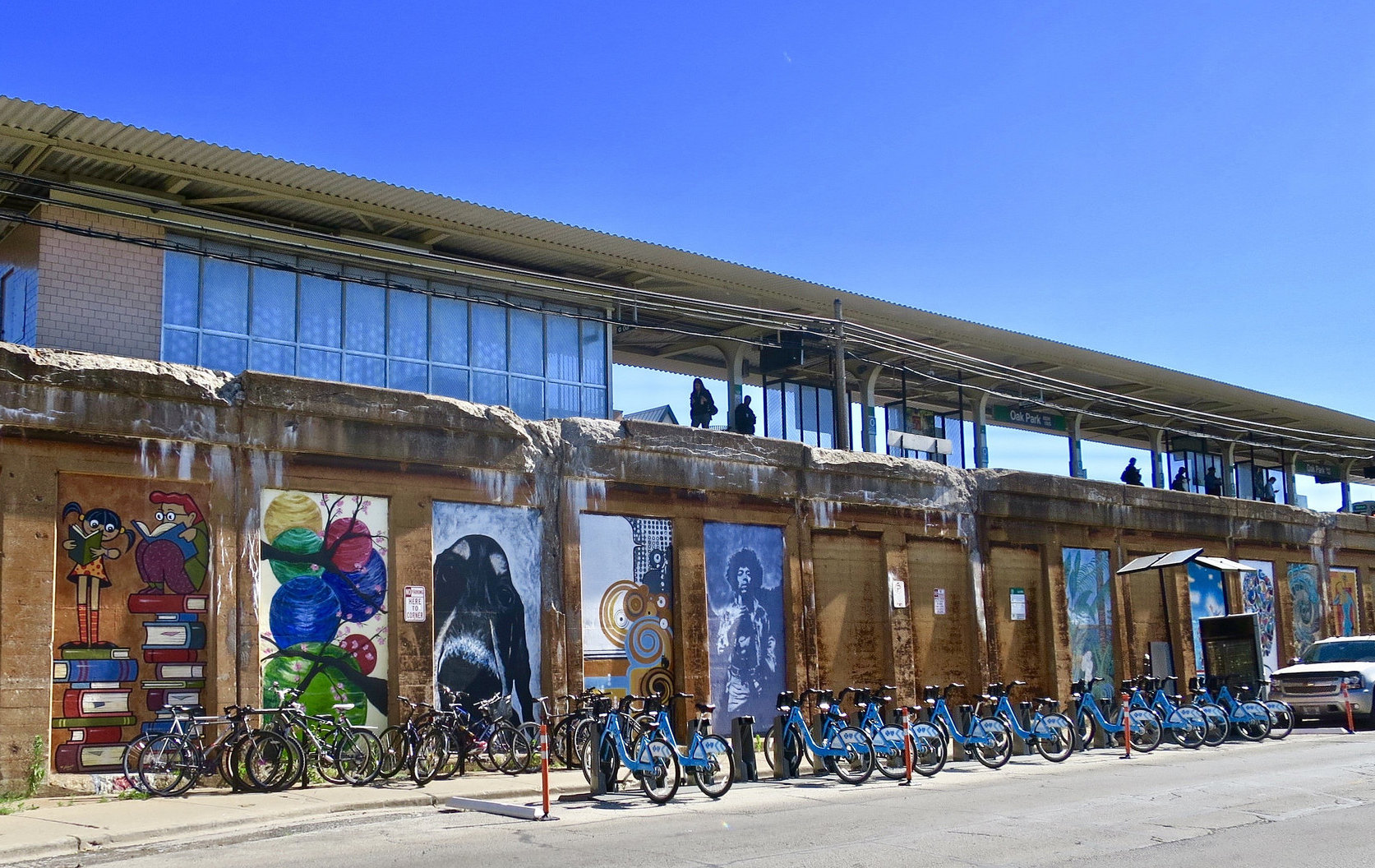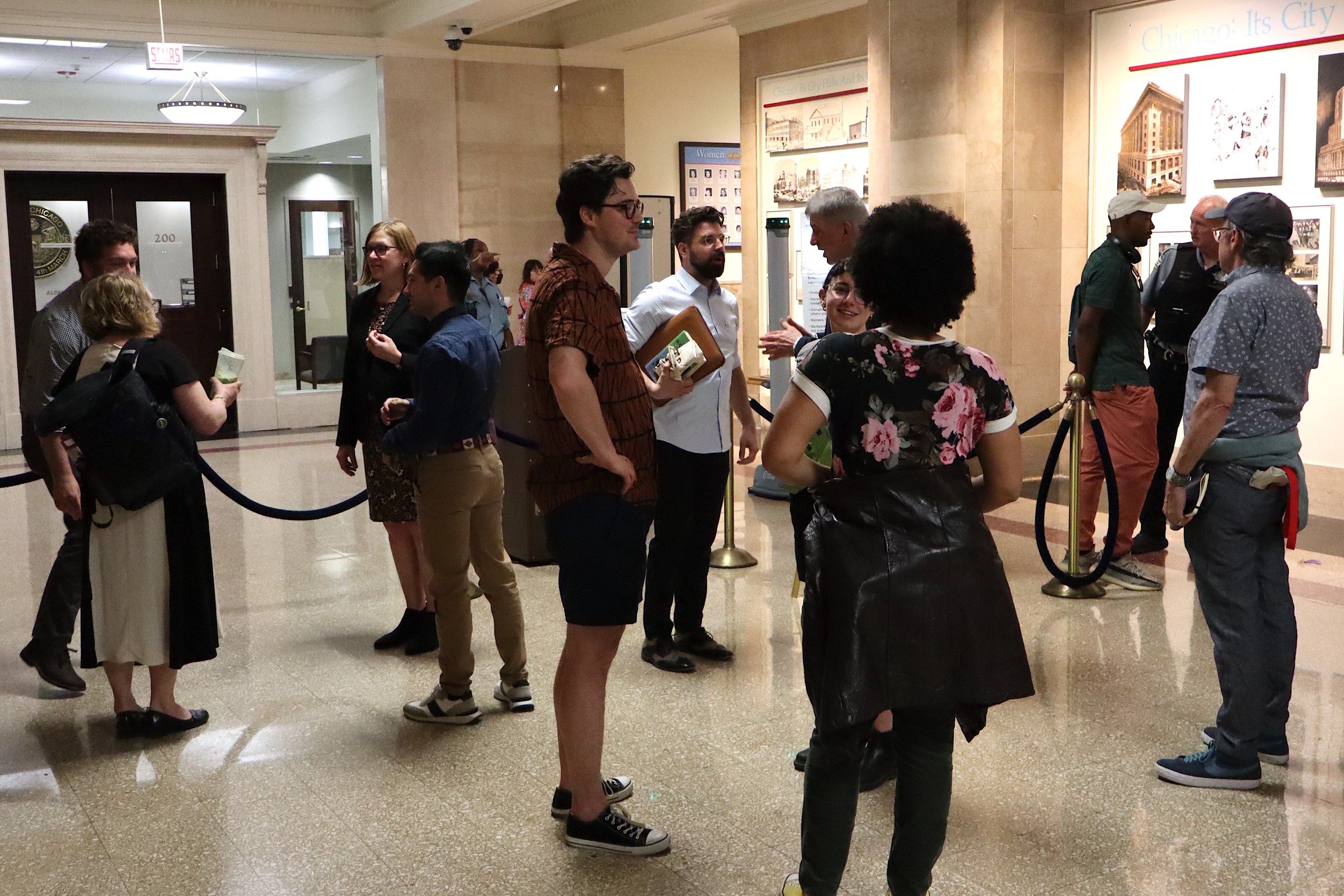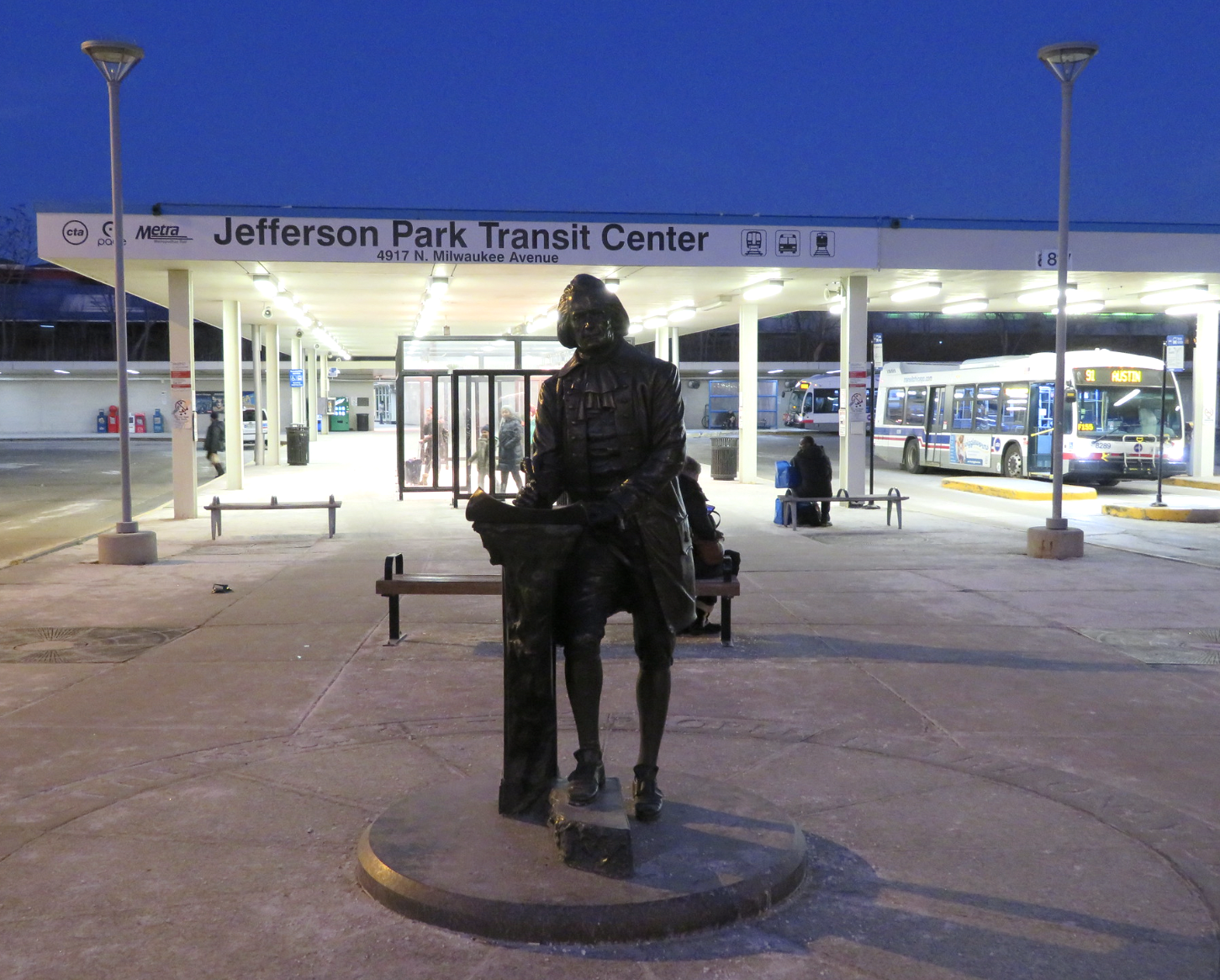For Whom the Bike Bell Tolls: Oak Park Kills Its Divvy Program
1:35 PM CST on January 17, 2018

A Divvy station by the Oak Park Green Line stop. Photo: Brian Crawford
Last night a slender majority of Oak Park trustees bowed to rising anti-tax sentiment in the increasingly pricey village, voting to pull the plug on the community’s two-year relationship with the Divvy bike-share system.
“For the $300,000 that we lay out for this program, we could buy every kid in town a free bicycle every other year,” said trustee Deno J. Andrews. “We could buy every adult a new bicycle every several years. We could buy our own fleet of bicycles and just let them be around town, for less money than we’re spending.” In the end, Divvy was doomed by a slew of disappointing statistics stemming from low ridership. Among them:
• Divvy cost taxpayers $17.48 for every ride, Andrews said in a Facebook post. Trustee Andrea Button clarified that Divvy was subsidized by parking fees, not by taxes, but the high cost was hung around the program’s neck: a $35 subsidy for each round-trip bike ride.
• Each of Oak Park’s 130 bikes saw 0.25 rides per day, according to trustee Dan Moroney.
• When Oak Park implemented a 40 percent-off sale on Divvy memberships in July, trying to invigorate the program, only 20 residents signed up.
“We have two years of data,” Andrews said. “We had two of the mildest, longest, most beautiful summers in Oak Park history. People aren’t using this.” During the most recent summer, only 34 people in Oak Park used Divvy each day, he said. “Less than one percent of the Village uses Divvy. The village is screaming: We don’t want this or need this.”

Trustee Simone Boutet suggested redirecting the parking money to other projects recommended in the village’s 2008 Bicycle Plan and its 2014 update. Bike-share is the only recommendation in the update that has been implemented, said village engineer Bill McKenna. Other ideas include intersection improvements, signs and striping to create a network of low-stress “neighborhood greenways.”
However, Button argued against scuttling a program without having its replacement ready. One of three remaining board members who originally approved Divvy, Button pleaded for one more year. “I’m not ready to call it a failure just yet. I think Divvy is still new in Oak Park,” she said, pointing out that it’s the village’s only sustainable transportation program.
Oak Park mayor Anan Abu-Taleb argued that beneficial programs shouldn’t necessarily be expected to pay for themselves. “If we take that logic and apply to the health department, we would not have a health department. If we apply it to the Building Department, we would not have a building department,” he said. “I believe we have not given this program enough time and enough management skills for it to succeed.
Oak Park partnered with Evanston and Chicago in 2013 to apply for a federal grant to expand Divvy to the two suburbs. In Spring 2016, 13 stations were installed at the village’s six CTA stations and destinations including the Frank Lloyd Wright Home and Studio, the village hall, and the visitors center. For the most part, stations were not placed in residential neighborhoods. During the same Divvy system expansion, Chicago installed 18 stations extending west from Garfield Park to connect to the fledgling Oak Park system.
By November 2016 Divvy had signed up 353 members in the village of 50,000. A year later, that number had grown to 431. Kelly Goldthorpe, director of marketing for Motivate, the company that runs the system, characterized that as a 20 percent increase in membership. But Andrews pointed out that ridership had dropped 11 percent over the same period.
Oak Park pays Motivate to clean, maintain and rebalance its 130 bikes and the 207 docks in its 13 stations. How much that costs remained unclear during the meeting. Trustees expressed confusion about the total expense and frustration over the confusion. Village staff brought them a contract to continue the program through 2018 for no more than $170,000, expecting to subsidize $129,000 of that. But the monthly expense trustees were quoted—$24,068—adds up to much more: $291,216.
The village had asked Motivate for a discount and to provide more docks to invigorate the system. Motivate offered a 10 percent discount but no more docks.
Goldthorpe promised to launch a marketing campaign targeting Oak Park specifically. She said that the city of Chicago would share sponsorship revenue of $500 to $700 per bike after its current sponsorship with Blue Cross/Blue Shield expires at the end of this year.
But Moroney, who had campaigned on a promise to create a sustainable community, said he had no data to suggest ridership would improve. “I wish I had the data to say let’s renew this program. I just don’t, and I refuse to make decisions that are not based on sound data.”
In the end it was one of the original supporters of Divvy, trustee Robert Tucker, who cast the deciding vote. He said he entered the meeting uncertain how he would vote. He read from a Chicago Tribune editorial supporting Divvy with the argument that “Profits aren’t the only measure of success.” But he conceded that the financial argument was hard to overcome. In the end trustees voted 4-3 not to continue their contract with Motivate. Andrews, Boutet, Moroney, and Tucker voting against the program and Abu-Taleb, Button, and trustee James Taglia voting to save it.
“So we don’t have a contract,” Abu-Taleb told the Motivate representatives. “We tried. Thank you. We wish you the best of luck. And we have some bikes to sell.”
As Motivate General Manager Michael Critzon was leaving the meeting, I asked him how the company would cope with the sudden loss of revenue from Oak Park. “I don’t think we’ve thought that far yet,” he said. “We were being optimistic that we would still be in Oak Park.”
Oak Park resident Ron Burke, the executive director of the Active Transportation Alliance, had urged trustees to look at how much the village spends to subsidize driving—on roads, on signs, on parking garages. After the meeting, he went into some detail. “I’d like to see a similar level of outrage over $25,000 parking spots,” Burke said. “There’s $400,000 in this year’s budget for parking signs. $400,000 for signs alone. That just goes to show you where the priorities are.”
Update: 1/17/18 2:45 PM: According to Divvy general manager Michael Critzon, the bike-share system is working on a transition plan for Oak Park's 13 stations and 130 bikes. He provided the following statement:
The Divvy program continues to grow not only in Chicago but throughout Chicagoland, with growing ridership from Chatham to Evanston every year. While it’s unfortunate that the Oak Park community will no longer participate in the Divvy program, we continue to be committed to providing the best possible system to our riders—one which is equitable, safe and fun—and we look forward to a strong peak riding season in 2018.
Read More:
Stay in touch
Sign up for our free newsletter
More from Streetsblog Chicago
They can drive 25: Residents, panelist support lowering Chicago’s default speed limit
While there's no ordinance yet, the next steps are to draft one, take a committee vote and, if it passes, put it before the full City Council.
One agency to rule them all: Advocates are cautiously optimistic about proposed bill to combine the 4 Chicago area transit bureaus
The Active Transportation Alliance, Commuters Take Action, and Equiticity weigh in on the proposed legislation.



